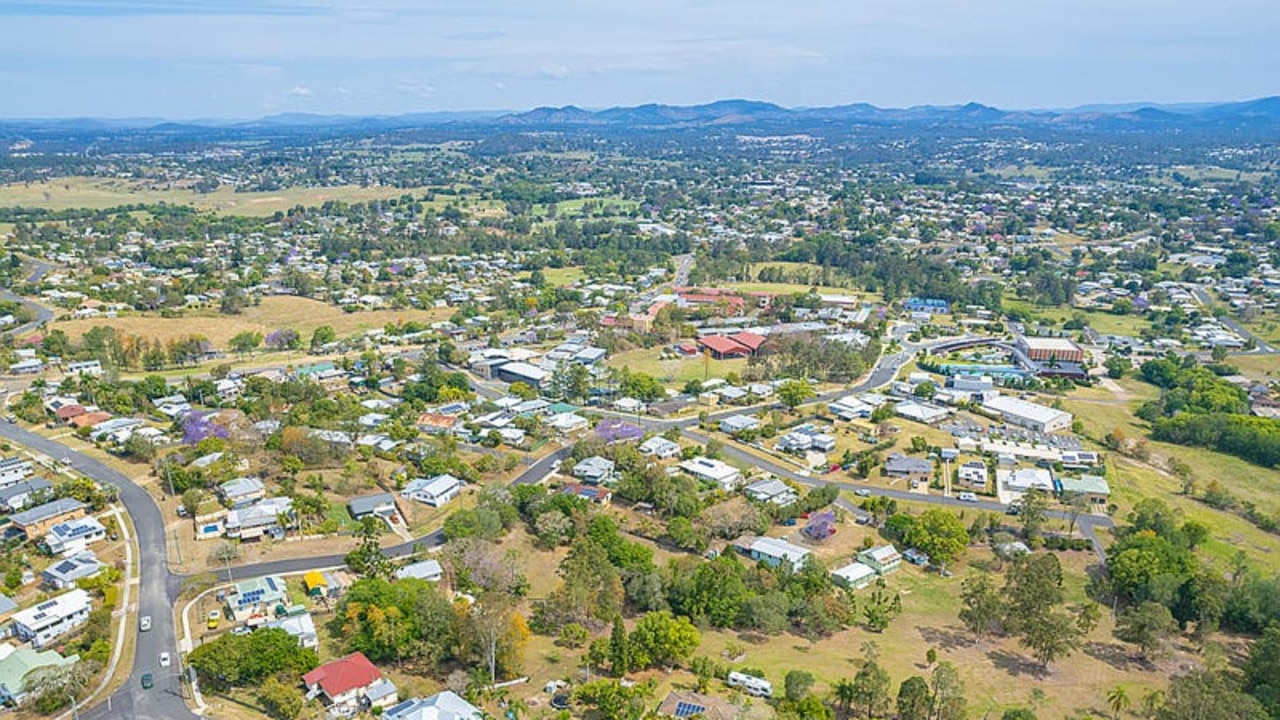Qld fire unit boss Sandy Brown exposes ‘toxic’ fire service culture
A veteran rural firefighter says the state government risks losing many of its volunteers unless it addressed a “toxic” internal culture which included sexism and discrimination towards female firefighters.
Gympie
Don't miss out on the headlines from Gympie. Followed categories will be added to My News.
Veteran rural firefighter Sandy Brown says the state government risks losing many of its volunteers unless it addressed a “toxic” internal culture which included sexism and discrimination towards female firefighters.
The Theebine first officer and Rural Fire Brigade Association of Queensland representative for the Maryborough region said the present culture was the worst she had seen in her 38-year career.
The issue was brought to light by a recent investigation that revealed the men involved in ringing a bell when “attractive” female recruits walked by at a Brisbane training academy “so everyone could have a look”, were not formally sanctioned for the behaviour.
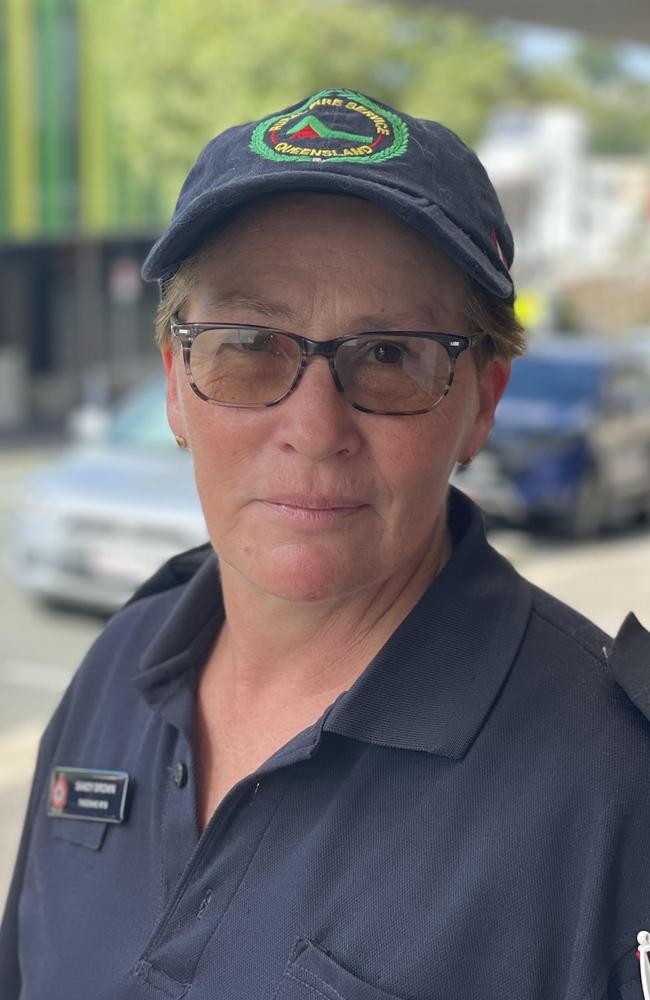
“We’ve gone back 40 years,” Mrs Brown said in Gympie.
“I’m nearly ready to walk.”
Her comments come as firefighters have warned conditions are perfect for extremely dangerous, fast-moving fires, the likes of which haven’t been seen for a number of years in Qld.
Minister for Women Shannon Fentiman has described the reports as “appalling” and “disgusting” and urged whistleblowers to come forward.
Mrs Brown said her firefighting career started in Victoria at a time “back when the boys were boys” and she was the only female member.
Somehow the culture back then was better than what was going on now at the Queensland Fire Department.
“I never had issues,” she said.
Mrs Brown was aware of one case in Queensland in which more than 70 pages of complaints had been made against one member from a number of people, including six women.
“Multiple female officers have rung me,” she said.
“There’s a real pattern.”
The complaints were dismissed due to “insufficient evidence”, she said.
In the past day she had also received a phone call from a female firefighter who had been “abused” but she’s “not prepared to step up and say something as she’s scared of the outcome”.
“There’s women out there that have been bullied.”
Girl in fight of her life after freak wind gust causes horror burns
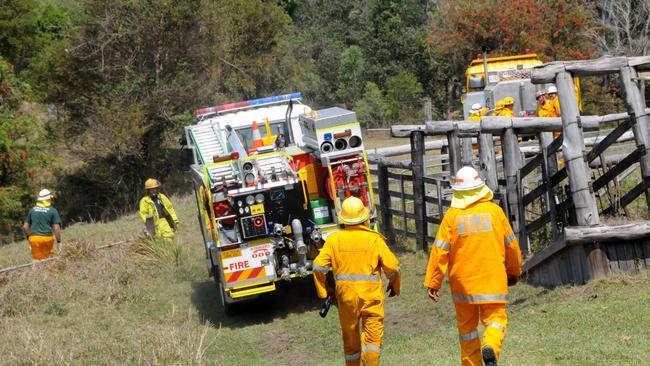
Two others she knew of were still “hanging in there … but both of them are ready to walk”.
Mrs Brown had experienced sexism herself.
In one instance, at a fire at Kandanga in the Mary Valley in 2019, an officer snubbed her despite the fact she was the brigade’s first officer.
“He literally turned around and said he didn’t want to talk to me,” she said.
“I’d never met him before in my life.”
“You think, where are we at?”
On another occasion a QFD staff member called a lower-ranking male volunteer to discuss a new tank for the shed, instead of the head of the unit – Mrs Brown.
This was in addition to “general bullying” and “snide comments” which been experienced by a number of female volunteers across the district.
In 2024, women make up less than 5 per cent of permanent paid firefighters in Qld, the second lowest participation rate in Australia.
The numbers are slightly better when it comes to volunteers in the Rural Fire Service where Mrs Brown volunteers. Of 27,200 volunteers, more than 7300, or 26 per cent, are women.
“It’s not acceptable”
QFD Commissioner Steve Smith said “inappropriate behaviour within QFD is unacceptable and will not be tolerated”.
“As Commissioner I have been very clear on my expectations for our people to uphold the highest standard of ethical and professional behaviour,” Mr Smith said.
“I am confident the issues raised are not systemic.
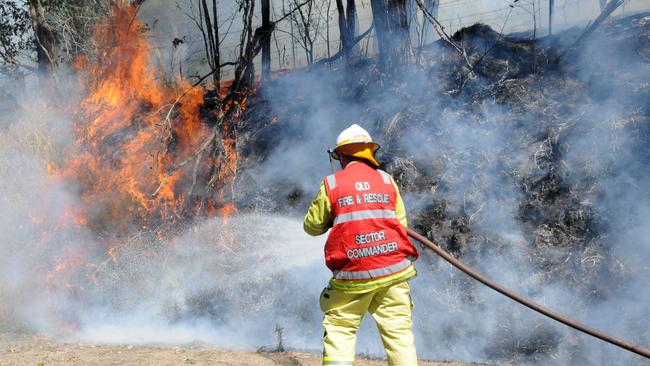
“Our department is made up of selfless and dedicated individuals who are driven by an innate desire to help others and serve their communities.
“It would be disappointing for all of QFD to be tarnished by the inappropriate and incredibly disappointing behaviour of a small number of people.”
Mr Smith said RFD and volunteer staff who experienced or were aware of inappropriate behaviour were “strongly encouraged to raise their concerns and lodge a complaint so it can be addressed”.
“There are multiple avenues for this to occur,” he said.
“Reports can be made verbally or in writing, and people can choose to make a complaint anonymously.”
He said a third party had been brought in to review QFD’s complaints management.
“This review is due to be completed shortly, and any recommendations will be considered to ensure best practices continue to be applied,” he said.
Volunteer chief calls for ‘safe space’
Rural Fire Association general manager Justin Choveaux said a “safe space” was needed for members to tell their stories, possibly an independent inquiry.
Telling members to raise the issue with the Fire Service, the body they experienced the problem under, would not help things, he said.
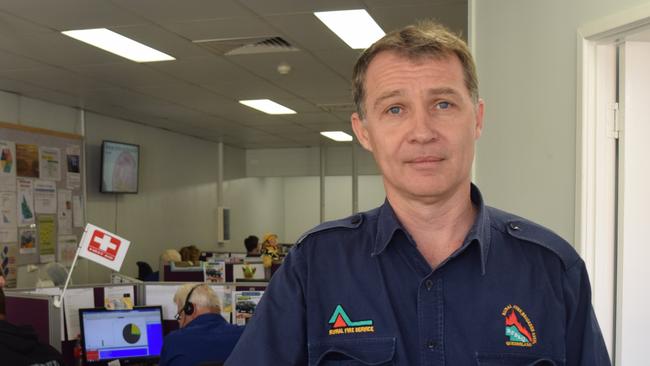
The Human Rights Commission was not an ideal forum either, given it favoured mediation between the parties.
This meant victims were being put back in the same room with the person who victimised them.
Many members were “scared” to come forward, Mr Choveaux said.
He questioned if this was to the state’s benefit, as it meant they could avoid the uncomfortable possibility of major systemic issues being dragged into the light.
“What do you do if you find the whole thing is rotten?”
In contrast, Mr Choveaux said the state would win with an inquiry by an independent party, regardless of whether it found widespread problems, minor issues, or no problem at all.
“I can’t see how (everyone) isn’t better off,” he said.
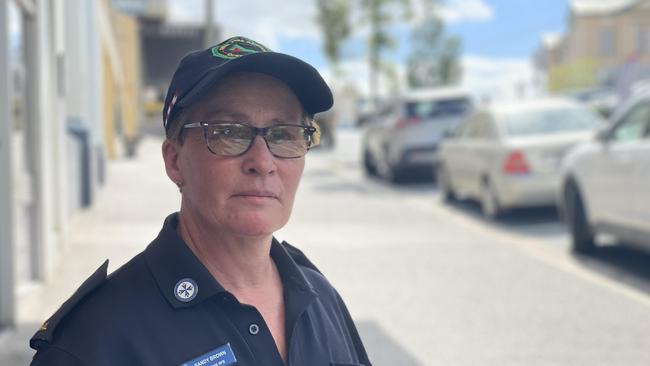
Mr Choveaux urged the government to revisit the Allison findings from 2014, saying it was disappointing the issues identified then still had not been fixed a decade on.
He had witnessed a number of rural people leave brigades over the years due to the toxic culture, and was aware of a recent matter at Far North Queensland in which a member left due to sexism.
In some instances the service had taken a step back, he said.
At one point the service’s executive leadership team had three women on it, Mr Choveaux said.
“Now they all look like me,” Mr Choveaux said.
“It does not reflect any society.”
Mrs Brown agreed with the call for a “safe space”, but questioned whether people would still feel safe given the issues at play, of which sexism was only a part.
It was disappointing given her lifelong commitment to rural firefighting.
“All I’ve ever done is look after QFES assets and the community,” she said.
“Volunteers talk with their feet.”




